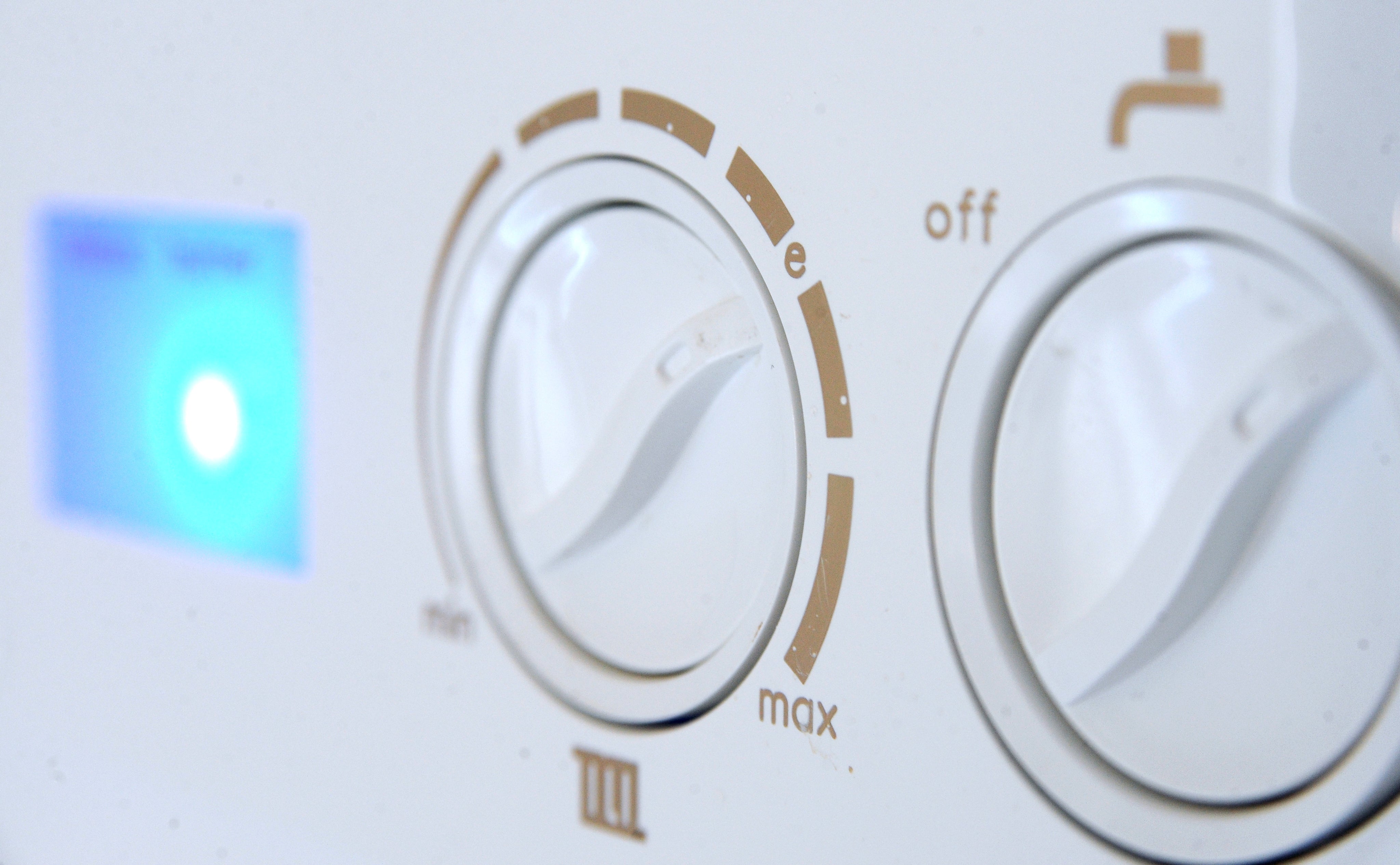Business Secretary and energy regulator agree price cap should ‘remain in place’
It comes after Kwasi Kwarteng said there would be no bailout for energy firms that go to the wall amid rising gas prices.

Your support helps us to tell the story
From reproductive rights to climate change to Big Tech, The Independent is on the ground when the story is developing. Whether it's investigating the financials of Elon Musk's pro-Trump PAC or producing our latest documentary, 'The A Word', which shines a light on the American women fighting for reproductive rights, we know how important it is to parse out the facts from the messaging.
At such a critical moment in US history, we need reporters on the ground. Your donation allows us to keep sending journalists to speak to both sides of the story.
The Independent is trusted by Americans across the entire political spectrum. And unlike many other quality news outlets, we choose not to lock Americans out of our reporting and analysis with paywalls. We believe quality journalism should be available to everyone, paid for by those who can afford it.
Your support makes all the difference.The energy regulator and the Government agreed the energy price cap must “remain in place” during crunch talks to find a solution to record gas costs.
Business Secretary Kwasi Kwarteng held a crisis meeting with the industry before announcing to the Commons that ministers would not be bailing out energy firms and that the energy price cap would be “staying”.
In a joint statement issued late on Monday evening, Mr Kwarteng and Ofgem chief executive Jonathan Brearley confirmed they had taken a unified position over the price ceiling continuing.
“Central to any next steps is our clear and agreed position that the energy price cap will remain in place,” they said.
Mr Kwarteng had earlier told MPs the cap saves 15 million households up to £100 a year, adding: “It’s not going anywhere.”
It comes as the Daily Telegraph reported that some companies present at the meeting – attended by the likes of Scottish Power, Octopus, E.ON and EDF – called for the cap to be scrapped amid fears more firms could collapse, with four having already gone bust.
Some analysts have reportedly predicted the UK’s energy companies could be drastically reduced over the coming months, leaving as few as 10 if the gas crisis continues.
The energy price cap, following a review in August, is already set to rise.
From October 1, those on default tariffs paying by direct debit face an increase of £139, rising from £1,138 to £1,277.
Prepayment customers will see a higher increase of £153, taking their annual bill from £1,156 to £1,309, according to Ofgem data.
Behind the call for industry support are surging wholesale gas prices which have increased by 250% since January, with a 70% rise since August alone, leading to the demise of some smaller energy firms.
The soaring prices show no sign of abating, with Bloomberg reporting the UK natural gas wholesale price had settled at its highest ever closing price on Monday.
Addressing MPs, Cabinet minister Mr Kwarteng said there needed to be an acceptance that gas prices “could be high for longer than people anticipate”.
But he called fears of a three-day working week “alarmist”, adding: “There is absolutely no question of the lights going out or people being unable to heat their homes.”
Energy suppliers are understood to be privately talking to the Government about backing loans or a “bad bank”’ style solution to a potential collapse in dozens of energy companies.
The rise in gas prices has been blamed on a number of factors, including a cold winter which left stocks depleted, high demand for liquefied natural gas from Asia and a reduction in supplies from Russia.
In addition, cables that import electricity from France were recently damaged in a fire, and September has not been a very windy month, meaning more gas is needed to produce electricity.
National Grid initially said the IFA interconnector would be offline until September 25, and only half of its two gigawatt capacity available until March 2022.
But on Monday evening, it extended the planned outage by around a month, until October 23.
The fire at Sellindge in Kent saw half the site’s capacity taken out, while the other half was unavailable due to a planned outage.
National Grid said: “The planned outage of 1000MW of capacity at the IFA interconnector has been extended until 23 October.
“The remaining 1000MW is unavailable until 27 March 2022 and our investigation into the fire at our site in Sellindge is ongoing.
“We are completely focused on getting IFA safely returned to service as soon as possible and we are in discussions with the UK ESO (Electricity System Operator) and our European partners to ensure we optimise upcoming planned pre-winter outages of our other interconnectors to support UK security of supply.”